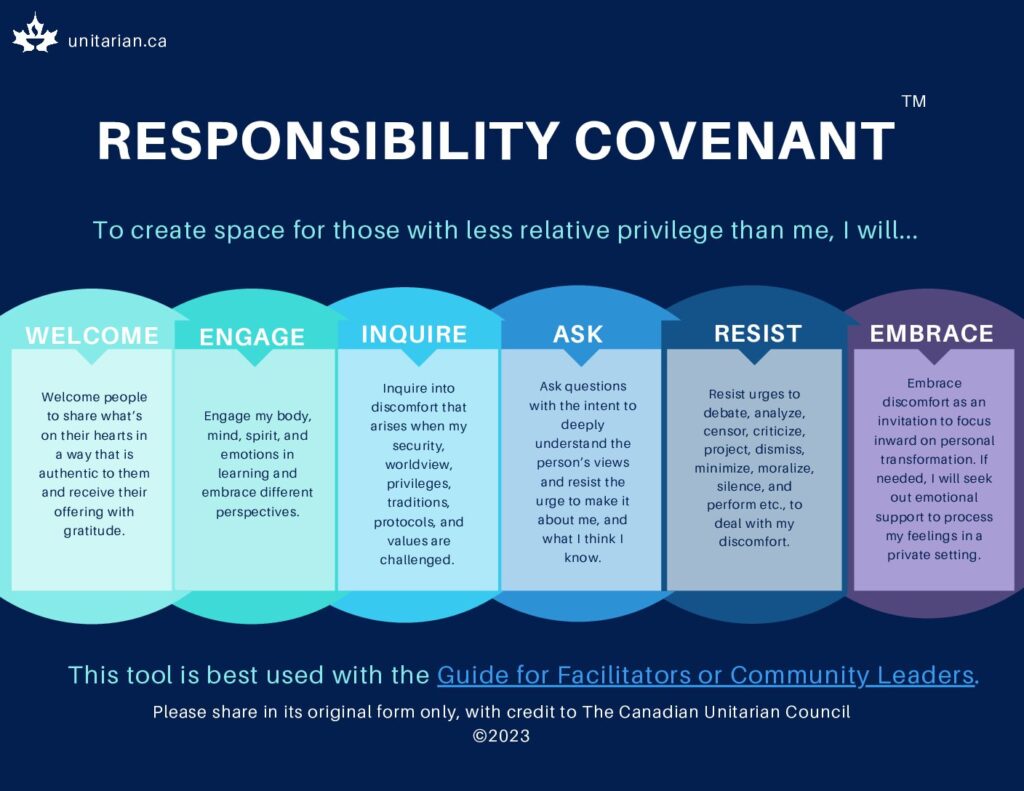
Introducing the Responsibility Covenant
A Tool for Inclusive Organizations
In 2021, the Canadian Unitarian Council–the national organization where we work–adopted a new guiding principle. This principle affirmed our commitment to “individual and communal action that accountably dismantles racism and systemic barriers to full inclusion in ourselves and our institutions.”
We were already on a path to dismantling racism. However, once we officially named the commitment in our guiding principles, we had to hold ourselves accountable to becoming a more inclusive organization. In order to dismantle barriers, we knew we would have to change.
Change, as we know, is uncomfortable, intense, and often very necessary.
There was some pushback. It was difficult for some people to see beyond the “unexpected” and “accountability” aspects of the change required. We respected their right to disagree while still working to fulfill our mandate (we call this Firm Compassion). We knew we needed to find a way for folks to talk about how they were feeling without causing more harm to members in our community who felt marginalized. Additionally, we needed to find a way to listen deeply to what others were experiencing without getting caught up in our defense mechanisms.
We decided to host four facilitated online forums. We grounded each session using the Responsibility Covenant, a self-reflective tool we developed to help those with relative privilege ensure a safe environment for those with less. We have found that using the Responsibility Covenant helps folks stay in relationship with one another.
Click here to see the picture in black and white.
We also created a guide for facilitators or community leaders who want to use the Responsibility Covenant.
To learn more about the background and purpose of the Responsibility Covenant, watch this video which we asked people to watch before attending the forums.
Forums are not the only places where folks can use this tool. We found it useful when inviting special guests to speak at events, hosting workshops, and beginning group discussions. The thing is, you never really know who is next to you, and by using this tool, you’re able to “notice and act” in ways that are beneficial to everyone in the room.
Let’s try using it now. Have you used the Responsibility Covenant? Or, would you like to give it a try? Tell us about it in the comments below!
***
Call and Response, the Canadian Unitarian Council’s new blog, is a forum for sharing ideas, tools, and resources with people and organizations who want to create a more loving, just, and equitable world.
Amber Bellemare is the truth healing and reconciliation program coordinator and Erin Horvath is the justice and equity lead for the Canadian Unitarian Council.
Subscribe to the CUC Blog Call and Response

